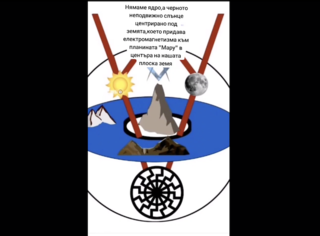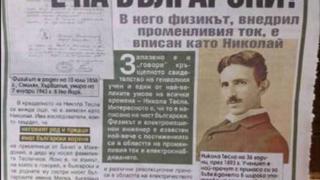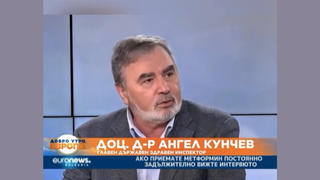
Is it true that Bulgaria is ready to donate its Belene Nuclear Power Plant (NPP) reactors to Ukraine and this will ruin its energy industry? No, that's not true: Bulgaria is in negotiations with Ukraine to sell, not donate, the equipment for the Belene Nuclear Power Plant (NPP) reactors. The Belene project has been costly and unsuccessful for decades. Claims that this sale would harm Bulgaria's energy industry or national interest are false and are based on pro-Russian propaganda. Ukraine requires reactors that are compatible with its existing nuclear plants and could secure funding from the EU or the US. If a deal is reached, it would relieve Bulgaria from the burden of Belene and enable the country to pursue a clearer energy strategy for the future.
The claim appeared in a TikTok video (archived here) published on July 5, 2023, with the following caption, translated from Bulgarian into English by Lead Stories staff:
The Euro-Atlantic coalition PPDB-GERB-SDS-DPS is preparing another betrayal of the Bulgarian people, this time in the field of energy by donating the Belene reactors to Ukraine❗️
The narrator, Angel Zhekov, an MP from Vazrazhdane political party opened:
The Speaker of the National Assembly, Rosen Zhelyazkov from GERB, has called an extraordinary meeting of the Energy Commission in two hours. At this meeting, the energy commission will consider the donation of reactors to the Ukrainian state that we, Bulgarians, should use for the Belene NPP. This is kind of a donation because the value they will be sold for is their initial price. The Ukrainian interest is being served to the detriment of the Bulgarian national interest and the Bulgarian energy sector, all in the service of NATO and Ukraine. A few months ago, we were an importer of electricity, we have always been an exporter. We will not allow the Bulgarian people to live in the dark and in the cold because Bulgaria was transformed from an exporter of electricity into an importer, completely dependent on foreign production and interests.
This is what the post looked like on TikTok at the time of writing:
(Source: TikTok screenshot taken on Fri Jul 14 12:28:16 2023 UTC)
After the visit of Ukrainian President Zelenskyy to Bulgaria on July 6, 2023, websites and social media posts in Bulgaria widely shared the false claim that Bulgaria will donate its Belene Nuclear Power Plant (NPP) reactors to Ukraine and that this will ruin its energy industry.
The National Assembly approved the proposal to authorize the Minister of Energy to start negotiations with Ukraine for the sale, not donation of the equipment for the Belene NPP. The decision set a deadline of 60 days for the implementation of the transaction, but it is possible that the sale process will last for months due to technical details.
For decades, the Belene Nuclear Power Plant project has faced continuous delays and suspensions, making its completion unlikely in the foreseeable future. In June 2018, the Bulgarian Parliament voted to lift the moratorium on the power plant's construction, and later in December 2019, five companies were chosen as potential strategic investors for the project. Currently, the Bulgarian state-owned energy company National Electric Company (NEC) initiated discussions with the Ukrainian state nuclear company Energoatom to sell equipment, valued at a minimum of €600 million, that was originally intended for the incomplete Belene NPP.
Selling the reactors would not only spare the energy industry but also liberate Bulgaria from the constraints of Belene, enabling the country to forge a more defined energy strategy for the future. Currently, there are considerable expenses linked to maintaining and storing the unused Belene reactors, as well as compensating the Russian contractor through the NEC. By potentially reaching an agreement with Ukraine, NEC could recoup some of its losses and reduce the financial burden of security and upkeep. This would allow the state to focus on optimizing the operation and expansion of the Kozloduy nuclear power plant while devising a practical and competitive energy strategy for the sector's benefit.
Over the course of its first three decades until 2016, the Belene NPP site received investments totaling approximately BGN 4.5 billion. However, the present value of the available assets has declined to below BGN 3 billion due to the natural depreciation over time. At present, Bulgaria does not require additional nuclear power capacity. The country's current operating capacity, which includes 2.1 gigawatts generated by the Kozloduy NPP, along with thermal power plants, district heating systems, hydropower plants, solar, and wind power plants, is sufficient to meet its average demand of about 4 gigawatts. Looking ahead, in 15-20 years, when the current Kozloduy blocks reach the end of their life cycle, they can be replaced with new ones.

















